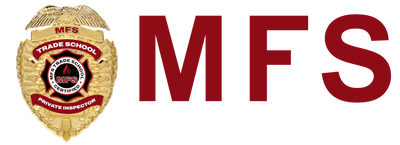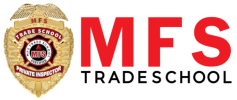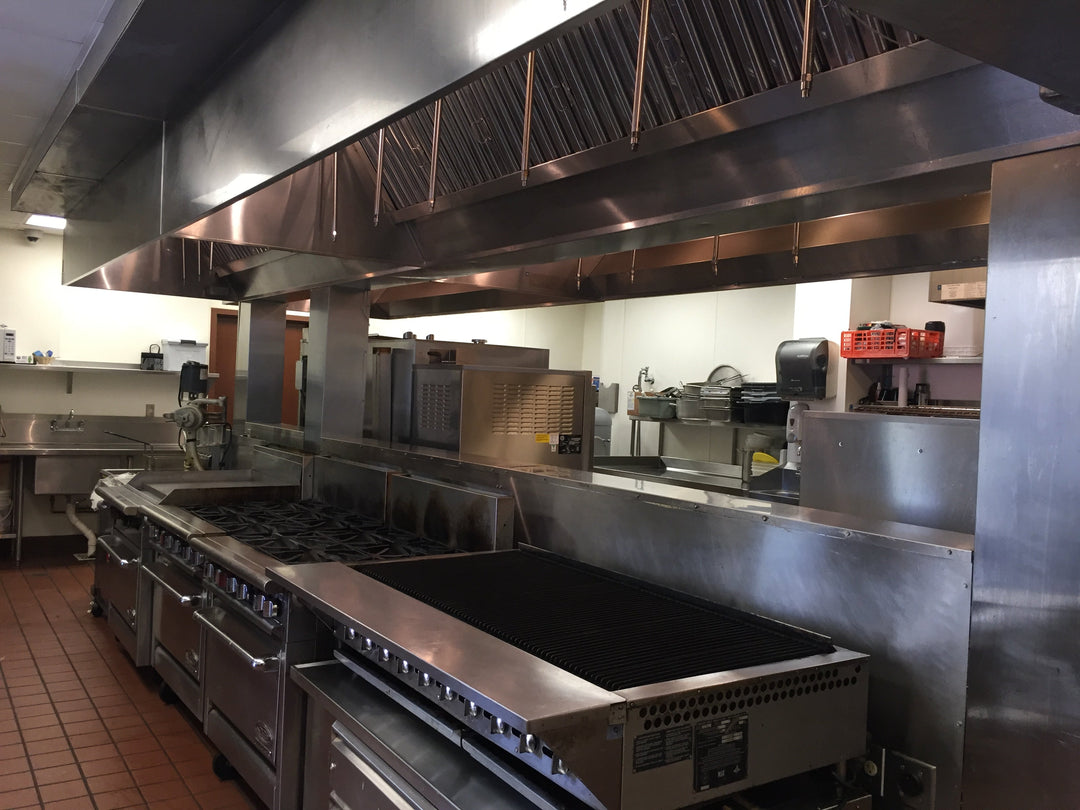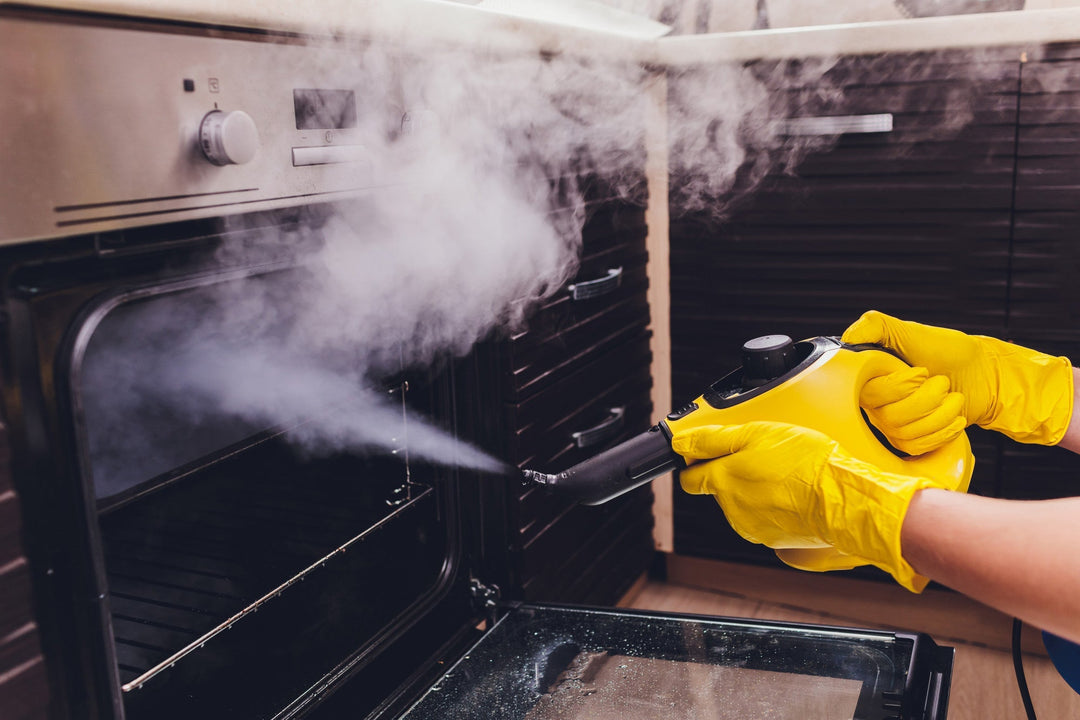How Proper Hood Cleaning Certification Protects Restaurants from Lawsuits
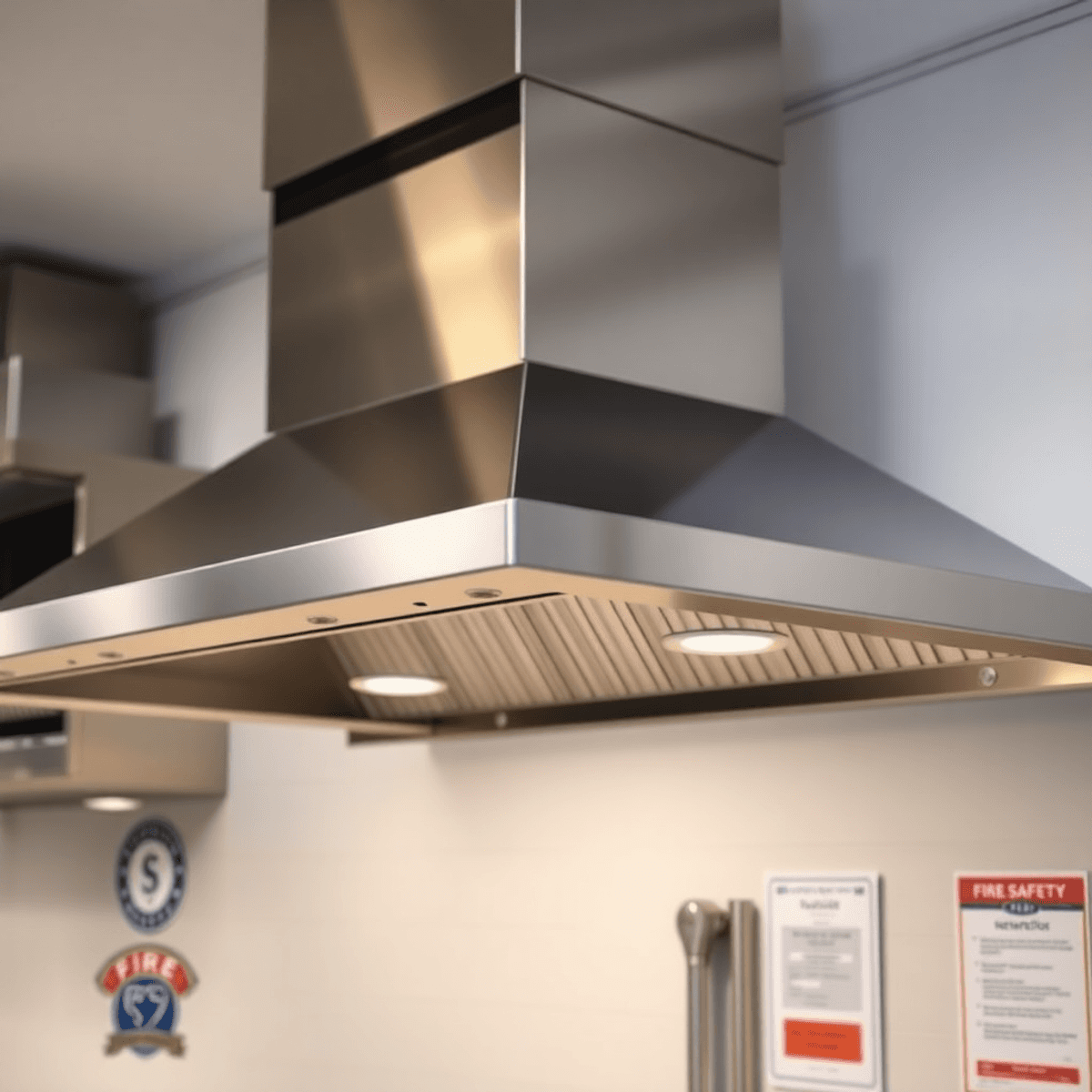
Restaurant owners face significant legal exposure when kitchen hood systems aren't properly maintained and certified. A single oversight in hood cleaning protocols can trigger devastating consequences, from costly lawsuits to complete business shutdown.
Critical Legal Risks of Improper Hood Maintenance:
-
Fire hazards from grease accumulation
-
Health code violations
-
Insurance claim denials
-
Personal injury liability
-
Property damage claims
Professional hood cleaning certification serves as a vital shield against these legal vulnerabilities. This certification validates that kitchen exhaust systems meet rigorous safety standards and comply with local regulations.
The financial impact of non-compliance can be severe. Restaurant owners may face:
-
Fines up to $10,000 per violation
-
Insurance premium increases
-
Legal defense costs
-
Business interruption losses
-
Reputation damage
A certified hood cleaning program demonstrates due diligence in risk management. This documented commitment to safety helps protect restaurants during inspections, audits, and potential litigation.
The investment in proper certification delivers essential legal protection through:
-
Documented compliance with fire codes
-
Verified adherence to NFPA standards
-
Regular inspection records
-
Professional maintenance logs
-
Updated safety certificates
Restaurant owners must recognize hood cleaning certification as a fundamental business requirement, not an optional expense. This proactive approach to safety and compliance helps safeguard both assets and operations from preventable legal challenges.
To further enhance the safety and compliance of your restaurant, consider investing in professional equipment such as the MFS Electrostatic Misting Fogger, which is battery-operated and can mist a large area in seconds, making it ideal for thorough disinfecting after hood cleaning.
Additionally, utilizing high-quality pressure washing hoses can ensure that all areas of the kitchen, including the hard-to-reach spots in the hood system, are effectively cleaned.
Understanding the Legal Risks of Improper Hood Cleaning
Restaurant owners face significant legal exposure when kitchen hood cleaning protocols fall short of industry standards. The National Fire Protection Association (NFPA) reports that 43% of restaurant fires originate in kitchen cooking equipment, with inadequate cleaning cited as a primary contributing factor.
Key Fire Statistics:
-
11,000 restaurant fires occur annually in the U.S.
-
Average loss per restaurant fire: $23,000
-
57% of fires traced to grease accumulation
-
3,000 injuries are reported yearly due to kitchen fires
Legal Consequences of Non-Compliance:
-
Criminal negligence charges
-
Personal injury lawsuits
-
Property damage litigation
-
Workers' compensation claims
-
Business interruption losses
-
Regulatory fines and penalties
Insurance carriers scrutinize hood cleaning documentation during claims investigations. Inadequate maintenance records can result in claim denials, leaving restaurant owners personally liable for damages. A single incident of improper hood cleaning can trigger multiple legal actions from:
-
Injured employees
-
Affected customers
-
Adjacent property owners
-
Local health departments
-
Fire marshals
-
Insurance companies
To mitigate these risks, it's crucial for commercial kitchen operators to maintain detailed cleaning logs, inspection certificates, and maintenance records. These documents serve as critical evidence in liability disputes and regulatory compliance audits, such as those outlined in this Bureau of Prisons policy document, which emphasizes the importance of proper maintenance and safety protocols.
One way to ensure proper hood cleaning is by hiring certified professionals who follow documented procedures. Regular hood cleaning by these professionals not only creates a documented trail of due diligence but also demonstrates a commitment to safety standards. This helps shield restaurants from allegations of negligence in legal proceedings.
Moreover, utilizing effective tools such as a high-quality hood degreaser can significantly improve the cleaning process. For those interested in starting their own hood cleaning business, comprehensive training programs are available that cover everything from costs and training to the necessary equipment needed for successful operations.
The Role of Certified Hood Cleaners in Ensuring Compliance and Safety
Certified hood cleaners play a crucial role in keeping restaurants safe and following regulations. They have completed extensive NFPA 96 certification training, which has given them specialized knowledge in various areas.
Specialized Knowledge Areas
This training covers important topics such as:
-
Fire prevention techniques
-
Assessing grease accumulation
-
Using proper cleaning methods
-
Implementing safety protocols
-
Following documentation procedures
Professional Qualifications
To become a certified hood cleaner, individuals must prove their expertise by:
-
Finishing accredited training programs, like those offered by trade schools, which provide hands-on experience and knowledge of local and national regulations.
-
Understanding OSHA compliance requirements
-
Mastering industry-standard cleaning equipment
Industry Standards Compliance
Certified professionals strictly follow:
-
NFPA 96 guidelines for ventilation control
-
Local health department regulations
-
Fire marshal inspection requirements
-
Insurance company specifications
-
Building code compliance standards
Continuous Education Requirements
To stay up-to-date, professional hood cleaners engage in ongoing education through:
-
Regularly renewing their certifications
-
Updating their technical skills
-
Receiving training on new equipment
-
Refreshing their knowledge of safety protocols
-
Participating in workshops on industry best practices
The certification process ensures that hood cleaners can identify potential hazards, implement preventive measures, and maintain detailed cleaning records. These professionals understand the critical relationship between proper maintenance and fire prevention.
Certified cleaners perform thorough inspections of ventilation systems, documenting:
-
Levels of grease buildup
-
Signs of wear and tear on components
-
Metrics on system efficiency
-
Requirements for cleaning frequency
-
Recommendations for maintenance
This systematic approach establishes a reliable safety framework that protects restaurants from immediate dangers and potential legal issues. Professional certification elevates standard cleaning procedures into a comprehensive strategy for managing risks.
Furthermore, with the increasing occurrence of foodborne illnesses and viral outbreaks, it is becoming more important for commercial kitchens to adopt. By implementing effective cleaning protocols, these establishments not only safeguard their customers but also uphold public health and safety standards.
Navigating Hood Cleaning Regulatory Requirements and Fire Code Compliance Standards
Restaurant operators must navigate complex regulatory requirements to maintain legal compliance and protect their establishments from fire hazards. The National Fire Protection Association (NFPA) 96 Standard sets specific guidelines for commercial kitchen exhaust systems, including the necessity of professional kitchen exhaust cleaning, which not only helps in maintaining health ratings but also ensures compliance with health department standards.
Key Regulatory Requirements:
Inspection frequency based on cooking volume:
-
Monthly: High-volume operations (24/7 cooking)
-
Quarterly: Moderate-volume operations
-
Semi-annually: Low-volume operations
Documentation requirements:
-
Written cleaning schedules
-
Inspection reports
-
Maintenance records
-
Photographic evidence
-
Service provider certifications
Fire Code Compliance Standards:
Minimum cleaning specifications:
-
Hood surfaces: <50 microns of grease accumulation
-
Ductwork: Complete removal of combustible contaminants
-
Fan units: Clean to bare metal
-
Access panels: Properly sealed after service
Safety system requirements:
-
Functional fire suppression systems
-
Accessible emergency shut-offs
-
Clear signage and labeling
-
Updated system diagrams
Local jurisdictions often impose additional requirements beyond federal standards. Health departments, building codes, and municipal fire marshals may mandate:
-
Annual permit renewals
-
Third-party inspections
-
Specific cleaning methodologies
-
Waste disposal protocols
-
Employee safety training
It's essential to follow effective hood cleaning strategies that not only meet these standards but also significantly reduce fire hazards in the kitchen.
Insurance Requirements:
Insurance carriers typically require:
-
Proof of regular professional cleaning
-
Current certification documentation
-
Compliance with local codes
-
Risk assessment reports
-
Updated emergency protocols
Non-compliance with these standards can result in:
-
Insurance policy cancellation
-
Coverage denial for fire damage
-
Increased premium costs
-
Mandatory facility upgrades
-
Operating permit revocation
Choosing the Right Cleaning Company to Reduce Legal Risks and Ensure Quality Service
Picking a qualified hood cleaning company requires careful evaluation of specific criteria to minimize legal exposure and maintain safety standards. A systematic approach to vendor selection helps restaurant owners make informed decisions.
Essential Selection Criteria:
-
Industry experience (minimum 5 years recommended)
-
NFPA 96 certification compliance
-
Workers' compensation insurance
-
Written service guarantees
-
Documented cleaning protocols
-
Emergency response capabilities
-
Professional affiliations
Verification Process:
-
Request proof of certifications
-
Check insurance policy status
-
Contact previous clients
-
Review service documentation samples
-
Inspect cleaning equipment standards
Due Diligence Requirements:
-
Obtain written documentation of cleaning procedures
-
Review safety protocols and risk management strategies
-
Verify technician training credentials
-
Examine quality control measures
-
Assess response times for emergency services
Risk Mitigation Strategies:
-
Regular performance evaluations
-
Documentation of all cleaning services, including custom video reviews for transparency and trustworthiness.
-
Photo documentation before/after service
-
Maintenance of detailed service logs
-
Clear communication channels
-
Written service agreements
Insurance Considerations:
A certified hood cleaning company should carry adequate insurance coverage:
-
General liability ($1-2 million minimum)
-
Property damage protection
-
Professional liability coverage
-
Workers' compensation
Quality Indicators:
Professional hood cleaning services that meet these criteria help restaurants maintain compliance while reducing exposure to legal risks. These companies typically offer comprehensive documentation systems that track cleaning schedules, maintenance records, and inspection results.
To ensure safety and maintain hygiene standards, it's also essential to consider additional services such as virus disinfecting. These thorough and efficient solutions can protect your space from pathogens, further ensuring the health and safety of your staff and customers.
Furthermore, the growth and success of a cleaning business can be significantly accelerated through the power of mentorship, as outlined in this insightful article on how mentorship can propel your cleaning business forward. By tapping into the wisdom and experience of seasoned industry experts, aspiring entrepreneurs can navigate the challenges and seize opportunities more effectively.
How Proper Certification Can Provide Legal Protection for Restaurants during Inspections or Audits
Proper hood cleaning certification serves as a critical legal shield during regulatory inspections and safety audits. Restaurant owners gain substantial protection through documented compliance with NFPA standards and local fire codes.
Essential Documentation Requirements:
-
Detailed cleaning reports with time stamps
-
Before and after photographs of cleaned equipment
-
Certification numbers of cleaning technicians
-
Maintenance logs showing regular service intervals
-
Written verification of grease removal procedures
-
Equipment inspection records
Legal Protection During Inspections:
Fire department inspectors specifically look for:
-
Valid hood cleaning certificates
-
Up-to-date maintenance records
-
Compliance with cleaning frequency requirements
-
Professional certification of service providers
-
Documentation of grease measurements
-
Evidence of proper cleaning techniques
To ensure compliance, it's essential to understand the top myths about kitchen hood cleaning that could lead to misconceptions about the process.
Audit-Ready Documentation System:
A comprehensive documentation system includes:
-
Digital records are accessible on demand
-
Time-stamped service verification
-
Photo evidence of completed work
-
Technician credentials and certifications
-
Insurance policy information
-
Emergency contact protocols
Restaurant owners must maintain these records for a minimum of three years. This documentation proves due diligence in maintaining safe kitchen operations and protecting against potential liability claims.
Real-Time Compliance Tracking:
Modern certification systems provide:
-
Mobile access to cleaning records
-
Automated scheduling reminders
-
Digital inspection reports
-
Instant verification capabilities
-
Compliance status monitoring
-
Real-time documentation updates
Professional certification demonstrates a commitment to safety standards and regulatory compliance. This documented adherence to industry standards strengthens a restaurant's legal position during inspections, audits, or potential litigation.
Regular certification updates and proper documentation create a solid defense against liability claims. These records establish a clear timeline of maintenance activities and demonstrate consistent adherence to safety protocols.
Moreover, understanding the importance of cooking oil filtration can also enhance a restaurant's operational efficiency. Proper cooking oil management not only improves food quality but also contributes to overall profitability, which is crucial during inspections or audits.
For more information on obtaining the necessary certifications for your restaurant, consider reaching out to MFS Trade School which offers comprehensive training and certification programs in the restaurant cleaning and maintenance industry.
Other Benefits Beyond Legal Protection that Come with Investing in Professional Hood Cleaning Services
Professional hood cleaning services deliver substantial operational advantages beyond legal compliance. Certified exhaust system cleaners implement systematic cleaning protocols that transform kitchen operations:
Enhanced Air Quality Management
-
Removal of airborne grease particles
-
Elimination of cooking odors
-
Reduced respiratory irritants
-
Improved ventilation efficiency
-
Better temperature control
Extended Equipment Lifespan
-
Prevention of mechanical wear from grease buildup
-
Protection of fan motors and bearings
-
Maintained exhaust velocity
-
Reduced strain on HVAC systems
-
Lower replacement costs
Operational Performance Optimization
-
Increased energy efficiency
-
Reduced utility costs
-
Faster heat dissipation
-
Improved cooking environment
-
Enhanced staff productivity
System Reliability
-
Early detection of potential issues
-
Prevention of unexpected breakdowns
-
Maintained optimal airflow
-
Consistent performance levels
-
Reduced emergency repair needs
Certified hood technicians conduct thorough inspections during cleaning sessions, identifying potential issues before they escalate into costly repairs. This proactive maintenance approach creates a safer, more efficient kitchen environment while protecting valuable equipment investments.
Regular professional cleaning by certified technicians also supports effective grease management systems, reducing the strain on fire suppression equipment and maintaining optimal kitchen exhaust maintenance standards.
Moreover, maintaining a clean and hygienic restaurant environment is crucial not only for customer satisfaction but also for meeting the strict cleanliness standards set by health inspectors.
Conclusion
Professional hood cleaning certification is a crucial investment for restaurant owners who want to protect their businesses from legal risks. By implementing certified cleaning protocols, they can create a strong defense against potential lawsuits, regulatory penalties, and insurance issues.
Restaurant owners who prioritize proper hood cleaning certification show:
-
Proactive Risk Management: By sticking to strict cleaning schedules and keeping thorough records
-
Regulatory Compliance: By following fire codes and safety standards
-
Professional Due Diligence: By hiring certified technicians and maintaining accurate maintenance records
Choosing to invest in certified hood cleaning services goes beyond just meeting basic requirements - it shows a commitment to:
"Protecting your restaurant's reputation, ensuring staff safety, and maintaining operational excellence through professional fire prevention measures."
Smart business owners understand that certified hood cleaning isn't an optional expense; it's a necessary requirement for running a successful restaurant. This investment brings tangible benefits such as lower liability risks, improved safety measures, and preserved property value.
To ensure fire safety compliance in restaurants, it's essential to stay dedicated to professional standards and follow regular maintenance schedules. By opting for certified hood cleaning services, restaurant owners not only secure the future of their businesses but also create a safer environment for both employees and customers.
FAQs (Frequently Asked Questions)
Why is proper hood cleaning certification crucial for protecting restaurants from lawsuits?
Proper hood cleaning certification ensures that restaurants comply with fire safety codes and kitchen ventilation standards, significantly reducing the risk of fire hazards caused by grease buildup. This compliance protects restaurants from legal liabilities, insurance claims, and potential lawsuits related to kitchen fires or inspection failures.
What are the legal risks associated with improper kitchen hood cleaning in restaurants?
Improper kitchen hood cleaning can lead to severe fire hazards, resulting in costly damages and potential injuries. Restaurants face legal risks, including lawsuits, fines, increased insurance premiums, and non-compliance citations during inspections if they neglect certified hood cleaning and maintenance standards.
How do certified hood cleaners contribute to restaurant safety and regulatory compliance?
Certified hood cleaners possess specialized training and qualifications, such as NFPA 96 certification, ensuring they perform thorough exhaust system cleaning according to industry standards. Their expertise helps restaurants maintain OSHA compliance, pass safety inspections, avoid fines, and effectively manage fire risks associated with kitchen ventilation systems.
What should restaurant owners consider when choosing a professional hood cleaning company to minimize legal risks?
Restaurant owners should verify the cleaning company's certifications, insurance coverage, industry experience, reputation, and client references. Selecting a certified and reputable service provider ensures quality cleaning that complies with fire code regulations and reduces the risk of fines, fire incidents, and liability issues.
How does maintaining proper hood cleaning certification aid restaurants during safety inspections or audits?
Maintaining proper hood cleaning certification provides documented proof of compliance with fire codes and kitchen exhaust regulations. This documentation facilitates smoother inspections or audits by regulatory authorities, demonstrating the restaurant's commitment to safety standards and reducing the likelihood of penalties or operational disruptions.
Beyond legal protection, what additional benefits do professional hood cleaning services offer to restaurants?
Professional hood cleaning enhances indoor air quality and overall kitchen cleanliness while extending the lifespan of exhaust system components through regular maintenance. It also improves operational efficiency by preventing grease buildup in ducts, contributing to a safer work environment and potentially lowering long-term maintenance costs.
